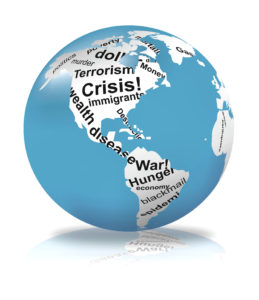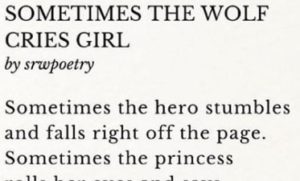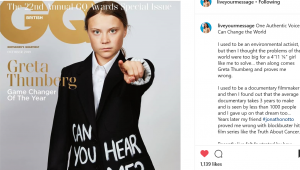Can We Leverage Covid to Turn the World Inside Out—In a GOOD Way??
I just came across a query letter I wrote in 2020. It raises a lot of questions that are still very much worth asking—and attempting to answer.

In many ways, these questions were easier to answer back then. Unfortunately, as a society, we missed the window to create those kinds of sweeping changes when the active threat of Covid made them easier—but we can still make the effort. We can still transform society, our relationship with other beings, and the planet in our own lifetime. It’ll just take more effort.
Here’s the relevant section of what I wrote back then (I’ve removed a long paragraph with my credentials, as well as my closing.)—and I’d love to get your comments:
Hi, there,
As an experienced journalist and award-winning, best-selling ten-book author with several books on social enterprise as a profit center, I propose an article, Leveraging the Great Pivot: How COVID-19 Creates Long-Term Post-Pandemic Opportunities for Racial Justice, Economic Advancement, and Environmental Healing. Probably in the 1500-2500 word range.
The premise: For decades, activists have been told we can’t fix the crushing problems of our time, like hunger, poverty, racism, war, catastrophic climate change, etc. Yet, starting in early 2020, the entire world pivoted and everything changed. As education, many types of business, and even cultural events shifted online or reinvented themselves, we learned how resilient, adaptable, and creative we are. And that process created opportunities that could never have happened in the pre-pandemic world.
These massive global, national, regional, and local shifts prove we can reinvent the world as the place we really want to live in–and we can replicate the shift in other areas. As a society, we have to do this pivot strategically, and it has to involve many sectors: government, nonprofits, activists, community organizations, academia—and the business community.
Just look at how the massive expansion of the racial justice movement since May has changed perceptions around the US and around the world. And that’s one small piece of a big multi-issue cauldron of solution-driven thinking and activism; a lot of good work is going into solving those big crises, as well as protecting our fragile democracy.
The question is: pivot to what?
Could health care coverage be shifted away from employers so the next time an emergency shuts hundreds of thousands of businesses, their laid-off employees don’t lose their safety net? Could this be the US’s chance to adopt the single-payer model most of the rest of the world uses? And to shift from treating the sick’s symptoms to maintaining wellness across the population so fewer people get sick in the first place? Can this be the moment to finally get away from fossil and nuclear, to combine clean renewable energy with massive systemic conservation so we’re no longer squandering our children’s heritage polluting and carbonizing our planet while depleting scarce resources? Is it time for decent affordable housing to be seen as a right? What are the best ways to create more housing that also protect the environment, create pleasant yet affordable neighborhoods, and avoid negative consequences like urban sprawl?
We can ask similar questions in every sector: criminal justice, job creation, transportation and shipping (moving both people and things), replacing armed conflict with peaceful conflict resolution, ensuring a pluralistic society that honors both its majorities and minorities, etc.
After four years of Trump and a year of COVID, it won’t be enough to go back to the “normal” of 2019, or even of 2015. But with the pandemic comes the luxury and responsibility of critically examining every aspect of society. We need to figure out what the goal of every institution is–and how to achieve or surpass that goal as we rebuild. Just as many developing countries skipped landlines and clunky desktop computers and went straight to smartphones, we need to ask questions like:
- What are we *really* trying to accomplish?
- Is this the best way to meet that goal?
- How could we improve it?
- How could we make it more inclusive?
Then we brainstorm with these ends in mind, using a seven-step process that opens up new thinking and lets us implement new solutions.
To make this concrete, think about spending millions of R&D dollars to create a pen that can write in zero-gravity. But the real goal isn’t to have a pen that can write in space—that’s a means to an end. The real goal is to be able to write in space. And suddenly, with that framing, the solution is obvious: use pencils—or computers! Maybe you create a pencil lead that can make a darker, easier to read impression, create a Velcro mount for your device so it doesn’t go flying across the cabin, or make other little tweaks—but you’ve accomplished the basic goal, with resources you already have.
Business has a vested interest in reinventing itself, as dozens of industries were rendered obsolete, as supply chain issues showed up unexpectedly, and as those sectors that strengthened and grew had to adapt. Small businesses can survive and even thrive, but not as it was in 2019. Whether a manufacturer switches from making luxury goods to PPE or a retailer learns how to blend online and (protected) in-person approaches, pretty much everyone has to pivot. Why not seize the opportunity to have that reinvention foster racial, gender, and class equity…green the planet while creating jobs…match product introduction and production not to advertising-created materialism but to solving real needs and getting paid for it?
In the activist world, meetings that might have had 10 local people in a room can now draw 500 from around the world—and provide digital tools to mobilize action, such as Spoke, a texting platform that can allow volunteers to send 1000 or more text messages an hour and respond individually and personally when someone replies.
In my own professional development this year, from the comfort of my own home, I’ve attended dozens of far-away events. Some had hundreds or thousands of attendees from dozens of countries (among them a worldwide UN conference, multiple 50th-anniversary celebrations of Earth Day, and gatherings on more niched topics such as the special situation of Jews of color). I could not have afforded the time and money to go to so many conferences, and several times, they’ve overlapped. But I was able to participate in more than one at a time, or listen to what I’d missed on replay. I’ve also participated in some thinking and brainstorming calls from widely scattered groups of thinkers and researchers working on global solutions to these and other problems. As somewhat more exciting examples, local cultural performers with no previous broader following are finding global audiences—and the sound technicians who can replace awful-sounding Zoom calls with concert-quality production are keeping busy.
Even on the personal side, some of the restrictions can be reframed as empowerment—just as we can think of a wheelchair user not as “confined to a wheelchair,” but “liberated with a wheelchair,” because it allows that user to go places that would otherwise be off-limits. My wife and I hosted a Passover Seder with family and friends from three generations and 9 different states from Massachusetts to California–most of whom would never have come in person.






